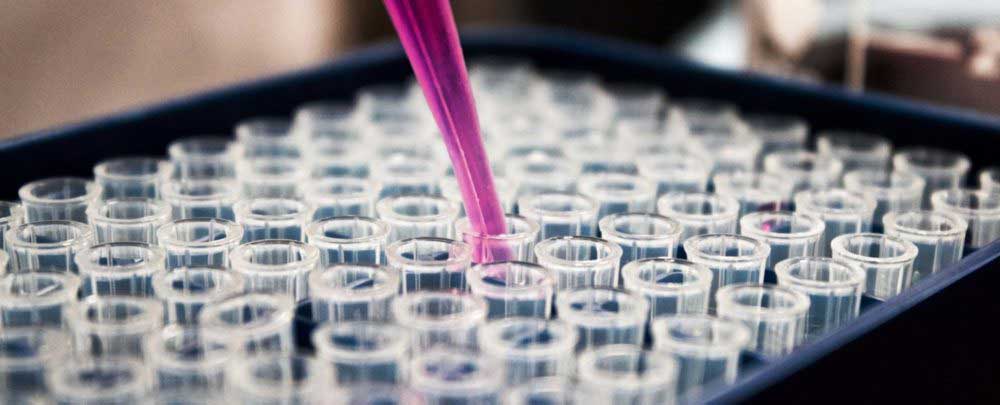newest article

Biomedical Ethics and Islam: A Brief Overview
20 July 2018 6:17 am // Written by Siti Rahmah binte Mirza Abdul Karim; Nur Fadhilah Binte Wahid; Mohammad Ridhwan Bin Mohd Basor;
Current issues in biomedical ethics reveal an array of conflicts and dilemmas across a wide range of topics and subject areas, which encompass different technologies and techniques of varying complexities and modalities, such as those on human biogenetic engineering and cloning, among many others. In the area of biogenetic engineering or modification, one specific example is that of mitochondrial transfer where prospective mothers suffering from mitochondrial disease, which leads to debilitating conditions in their offspring such as blindness, epilepsy, organ failure and early death, would be able to exchange their defective mitochondria with a healthy one from a female egg donor (Weintraub, 2014).
This mitochondrial replacement technique would thus allow afflicted mothers to conceive and bear healthy and normal children, who would inherit over 20,000 healthy nuclear genes from their mothers, but not the faulty DNA found amongst the 37 maternal mitochondrial genes, as this would be replaced by those of a healthy donor’s. While the amount of mitochondrial DNA transferred or inherited from the donor is considered as trace amounts and do not affect any major traits, such as physical appearance etc, they are nonetheless critical due to their role in providing sufficient energy for the performance of the body’s basic cellular functions. Despite the therapeutic application of this technique, others have questioned its safety as well as possible implications and effects on the affected offspring and his/her future generations down the line.
Framework of Norms
Such ethical conflicts and dilemmas possess considerable complexity and philosophical depth, that any potential effectual resolution would require the integration or mixing of various categories of moral norms and types of ethical reasoning. (Beauchamp & Childress, 2001) argue that moral justification should proceed from “an expansive coherentist framework of norms that originate at all ‘levels’”, whereby such norms can, not only, “emerge from institutions, individuals, and cultures,” but are also non-resistant to future revisions. Such an approach is sensible as it would allow one to utilise the relevant and useful features of any particular moral category (principles, rules, theories, codes, case judgements, practices, paradigms, parables, analogies, etc) without having to choose one over the others, but rather supplementing one with another where needed.
Although there is a dearth in current literature on contemporary Islamic medical ethics (Rispler-Chaim, 1993), the Islamic ethical and moral code has the potential to provide an additional and valuable working perspective to further expand this ‘framework of norms’. Since most moral codes do not differ on major points of principle, but rather their deviations exist as a result of different opinions regarding empirical facts (Nowell-Smith, 1954), such an approach may prove workable and even desirable in today’s global context with its cosmopolitan and pluralistic society. An alternative would be to strive for a Rawlsian overlapping consensus whereby adherents of comprehensive and reasonable doctrines are able to accept the fact of pluralism and show willingness to live together peacefully on terms acceptable to all (Ainslie, 2002).
In the real world of practical judgments and public policies, we often need no more agreement than an agreement of principle – not an agreement regarding the foundation of the principle. – Tom L. Beauchamp and James F. Childress, Principles of Biomedical Ethics (5th ed.).
 Sphere of Islamic Ethics
Sphere of Islamic Ethics
Islamic ethics is primarily a combination of theological voluntarism and deontology but with hints of teleological tendencies which encourage a special kind of utilitarianism, namely theistic utilitarianism (Brown, 1999). In spite of such voluntarism, Islamic ethical reflection is entirely possible and absolutely necessary because “(1) the Qur’an and Sunnah do not provide transparent solutions for every conceivable problem, and (2) God’s will is presumed to be purposeful, so that human reason, in dependence upon revelation, can discern rules and apply them” (Brown, 1999). This is identified by the late Fazlur Rahman as the “proper sphere of Islamic ethics”, where a concerted effort, involving one’s mental and spiritual capacities, is required to find probable answers to the many questions of everyday life.
In Islam, answers to such questions include “ethical action…which results in the greatest eternal good for the individual and for humankind…where the utility of an act is measured not by temporal goods, but in relation to eternal goods as defined by God” (Brown, 1999). Although temporal goods have their own significance and right of place, they are but a transitional factor to further aid in the achievement of eternal goods or rewards. This is viewed from the standpoint that, ultimately, it is the individual who will be responsible in answering to God on the Day of Judgement, and as such, often, the individual conscience, best when supplemented by divine guidance through Qur’anic injunctions and Prophetic Sunnah, is considered the de facto guide for one’s actions.
Additionally, in Islam, another key concept which should be taken into account in any ethical deliberation, including that of contemporary biomedical ethics or bioethics, is the principle of zulm al-nafs, which is the Qur’anic scriptural norm against transgressing ‘the bounds’ that would fundamentally amount to a wrong against oneself. The word zulm, as ‘transgression of a bound’, would denote any kind of human act that goes beyond the proper limit and encroaches on the right of others (Izutsu, 2002). In Islam, the individual is viewed as an extension not only of the ummah but also of the cosmic telos, thus the considerable resulting overlap of individual and public interests, which would result in wrong unto others becoming injury to oneself.
The Islamic Position
In light of the principles and concepts discussed briefly here, the Islamic position on issues and technologies in contemporary biomedical ethics becomes a little clearer, namely it goes beyond mere procedural or rights-based concerns, where Islam is not against scientific inquiry or constrained to procedural considerations per se, nor does it advocate needless restrictions of freedom of choice and autonomy, rather, Islamic ethical concerns transcend such boundaries to a higher level, that of the greater good, which never cease to take into context the purpose and goals of humanity in relation to the entire cosmos.
This is similar in some respects to the global ethic of the living as proposed by Potter’s definition of bioethics in 1970, when the term bioethics was first coined, which calls for the acceptable survival of mankind which does not neglect the preservation of the total biosphere (Potter & Potter, 1995). Although this original bioethics definition has been linked more to environmental ethics, usage of the term has become appropriated more and more in medicine, and is now sometimes loosely interchanged with biomedical ethics. Regardless of this, the Islamic position necessitates a holistic and integrated view in seeking guidance and answers to the various issues in biomedical ethics, just as it does for life in general, both currently and in the future.
Note: The publication copyright of this article belongs to Pergas. No part of this article may be reproduced or stored in a retrieval system or transmitted in any form or by any means, electronic or otherwise without the permission of Pergas. Permission is only given for sharing this article vis its original URL.
Opinions expressed in this article belong to the author and do not represent Pergas’ official stand unless if Pergas explicitly says so.
References
- Ainslie, D. C. (2002). Bioethics and the problem of pluralism. Social Philosophy and Policy, 19(2), 1-28.
- Beauchamp, T. L., & Childress, J. F. (2001). Principles of biomedical ethics (5th ed.). New York: Oxford University Press.
- Brown, D. (1999). Islamic ethics in comparative perspective. [Review]. The Muslim World, 89(3), 181-192.
- Izutsu, T. (2002). Ethico-religious concepts in the Quran. Montreal; Ithaca, NY: McGill-Queen’s University Press.
- Nowell-Smith, P. H. (1954). Ethics. Harmondsworth, England: Penguin Books.
- Potter, V. R., & Potter, L. (1995). Global bioethics: converting sustainable development to global survival. Medicine and Global Survival, 185-191.
- Rispler-Chaim, V. (1993). Islamic medical ethics in the twentieth century. Leiden; New York: E.J. Brill.
- Weintraub, K. (2014). FDA weighs risks of 3-person embryo fertilization. USA Today. Retrieved from http://www.usatoday.com/story/news/nation/2014/02/24/fda-three-person-embryo-fertilization/5777869/
SCIENCE ETHICS ISLAM AND ETHICS TECHNOLOGY HEALTH MEDICAL MEDICINE MORAL CONTEMPORARY ISSUES ISLAMIC PERSPECTIVE



 Sphere of Islamic Ethics
Sphere of Islamic Ethics



